The First Three Years is an investigation by The Stack World into one of the core drivers of gender and class inequality in the UK today: childcare.
The First Three Years
Access to childcare in early years has a socio-economic ripple effect that can be felt across the whole of our society. And yet, the system is now close to collapse. Is it time to rethink parental care in the early years?
By Alexandra Jones
ucy Dartford clutched her two-month-old daughter, Zuri, as she rang the doorbell to her parents’ home. She felt heavy with exhaustion and burnt out by the undercurrent of anxiety, which had been running through her body like static electricity for weeks now. She had been trying to stay calm and positive for the good of the baby but this was not how she had expected motherhood to be.
The realisation that she was a single parent had only just started to crystallize out of the fog of new motherhood. “It was such a confusing time,” says Lucy, now 37. “I was just dazed from it all. I had this tiny new person to think about, and for various reasons, I had no one to help me.”
And beyond that, Lucy had a PR business to run. The business was doing well, but not quite well enough for her to take any maternity leave (“I took a client call while I was in labour,” she says).
In the pressure-cooker environment of night feeds, early morning meetings and no one to help with childcare, Lucy realised something had to give. “I decided I’d have to take my daughter, give up my flat and go back to living with my parents,” she says. “Realistically, I had no choice. I couldn’t afford to pay both rent and childcare costs on my own. And I couldn’t stop working to look after Zuri full-time because mine was the only income.”
“I don’t know how others juggle it, but for a long time I felt like I was living on a knife edge”

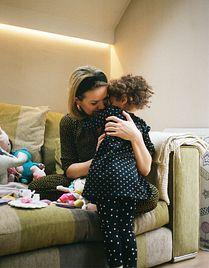
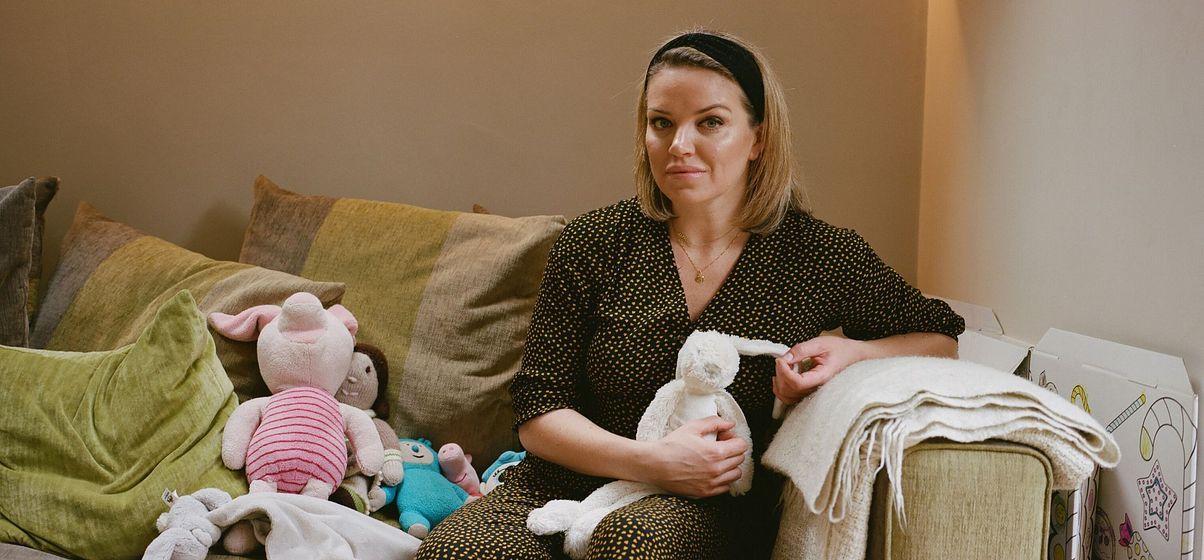
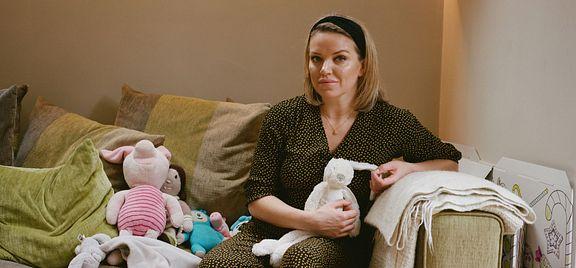


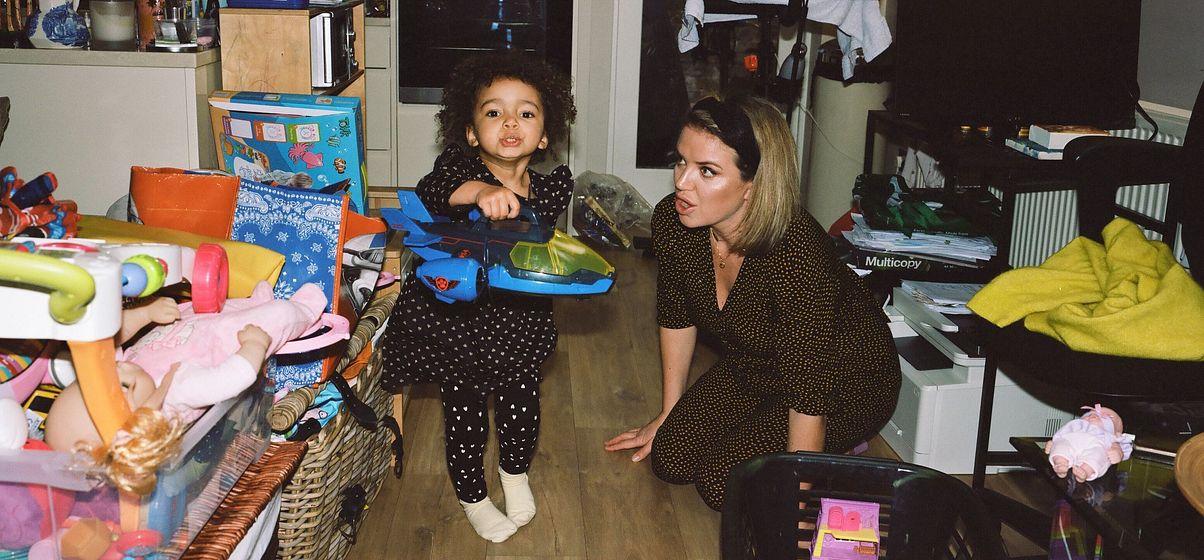
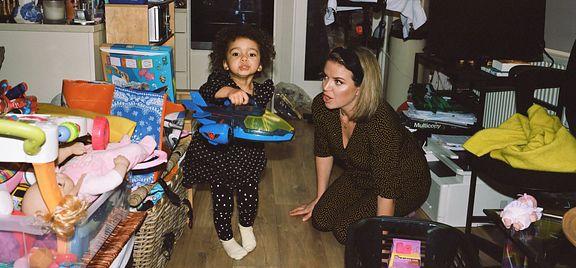

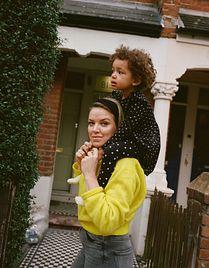
According to the Money Advice Service, the average cost of sending a child under two to nursery is £131 a week part time or £252 a week full time. “£1,000 a month, on top of rent, bills and feeding yourself, on a single person’s income…” Lucy trails off.
The UK has one of the most expensive early years sectors in the world, which means that access to childcare has the power to deepen the fault lines – poverty, gender, class – along which inequality already moves in our society.
With COVID causing a crisis in the sector (according to research by the Women’s Budget Group, 58% of local authorities expect some childcare providers in their area to shut permanently in the wake of the pandemic), which is likely to hit the most marginalised first and hardest, experts such as the Labour Peer Baroness Judith Blake, are calling for widespread reform.
“There is a huge need for a national debate about early years childcare,” she tells The Stack World. “And if COVID has exposed anything, it’s that issues around the funding of early years care — how that funding is distributed in the community and the quality of the care itself — haven’t been picked up and addressed properly for far too long.”
A ‘30 hours free’ policy was introduced in 2017 and offers 30 hours a week of state-funded nursery or childminder places for all three- and four-year-olds. But as Lucy points out, without access to support in those first three years, a person’s life can change forever.
“When Zuri was born, I had a little pot of money,” she says, “I had started to think about buying a house.” In the end, though, her savings were eaten up by childcare costs.
“No one prepares you for how expensive those first few years of nursery can be, especially as a single parent. Even with my parents’ help, I needed to hire a childminder for some of the time – and that had a ripple effect. For me, it means that I’ll probably never get on the housing ladder. I just don’t see how it’s possible to save that amount of money again.”
In February 2021, Peanut, the social app for women and mothers, sent a survey to their users which – to borrow Lucy’s words – perfectly illustrates “the ripple effect” that childcare can have. Almost nine out of 10 women who took part in the survey said they thought their career, mental health or relationships would have suffered less if they’d had access to childcare in the years before their children turned three.
Some 87% had had to make sacrifices because of childcare in that period; almost half had to go part-time at work; and almost a quarter had to leave their jobs altogether. Like Lucy, the majority (71%), relied on parents for help.
“No one prepares you for how expensive those first few years of nursery can be...I’ll probably never get on the housing ladder. I just don’t see how it’s possible to save that amount of money again”
The door swung open and Lucy’s parents welcomed them; in the hallway, her mum had set up a lightbox with a sign that read: “You’re safe. Welcome Home, Lucy & Zuri.”
“I just started crying with relief,” says Lucy.
Almost three years later Lucy and her daughter are back on their feet and now living in their own (rented) flat. Zuri will soon be entitled to her 30 hours of government-funded childcare. Lucy says: “Imagine, though, if I didn’t have parents to fall back on? I would have had to stop working, lost business and probably been driven into yet more debt. I don’t know how others juggle it, but for a long time I felt like I was living on a knife edge.”
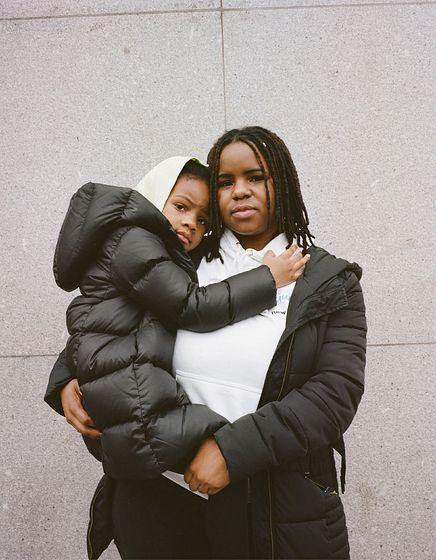
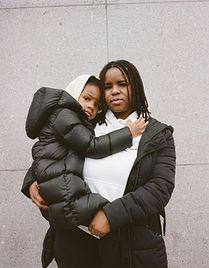
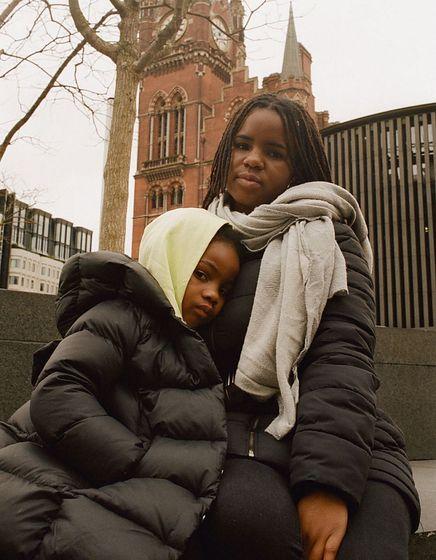
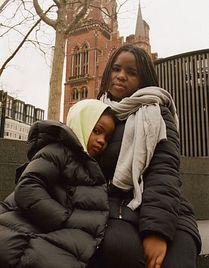
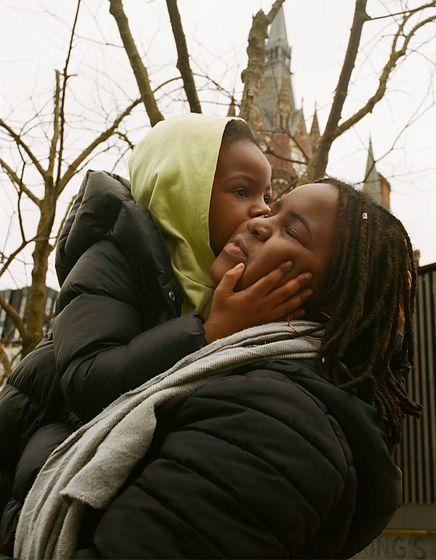

A Broken System
The first hostel that Regina Coker-Ogunsola (now 34) and her then seven-month-old daughter, Zuri, were placed in smelled strongly of weed. “It was cold, but we just had to leave the windows open to get the smell out,” she says. “But in a way, it was OK. I drew strength from the fact that I’d gotten myself and my daughter out of the situation I had been in.”
To this day she finds it difficult to categorise what she went through as ‘emotional abuse’. “I hate to put a label on it,” she says quietly, “but yes, that’s what it was, that’s what happened to me. And one night, I just thought, enough,” she says. She told her partner that she was leaving, packed as many of her belongings as she could fit into two bin bags, took their daughter and left.
After leaving her partner, Regina found it incredibly difficult to get back on her feet, as all of her finances were in her partner’s name. “I never thought I’d end up homeless,” she says. “I never saw myself as some kind of charity case.”
For two weeks in the summer of 2016, Regina and her daughter sat in King’s Cross station watching commuters fight for space on overcrowded trains and hoping that a friend would call to say they could crash on a sofa for a night or two.
“Some months it was like, nursery or food? It was a struggle, I was paying it with pennies. But it meant I could work and Zuri could socialise with other children, which I felt was important for her”
“The first thing I did was try to find a place for my daughter and I to live, but my ex had put everything in his name – I had no proof of address, no bills in my name, no tenancy agreements”
Eventually she was placed in temporary accommodation by the council, where she remains.
“For the first year it was OK, I had postnatal depression but because I was at home I could look after Zuri,” she says. “As she got a little older, though, I wanted to work. To get help from the council I’d been told I needed to be on benefits, but that’s not me, I’d worked my whole life, so I decided whatever it took I’d find a job, which meant I also had to find a place in a nursery for Zuri.”
In 2018, research from the Organisation for Economic Co-operation and Development (OECD), a UK-based body that examines economic progress across 37 member states, found that the UK had by far the most expensive childcare costs for pre-school children. For a two-child household in England, where both parents are in full-time work, the study found that childcare costs ate up 55% of the average monthly household budget – more, even, than the cost of a mortgage.
It was a stark finding, but at the time government spokespeople argued that there is a matrix of state-sponsored voucher schemes and tax breaks in place, which meant that only the most well-off parents would ever have to pay the full cost of childcare. Those eligible for Universal Credit – paid to people who are out of work or in low income employment – could claim back up to 85% of the cost of childcare, a scheme that remains in place to this day.
“Mine is just one example of how that system is not as straightforward as they make it out, though,” says Regina. “At the time, financially, everything was horrible. There were times when I didn’t have anything in the fridge. I was just scraping together what was in the cupboards. Fresh vegetables were so expensive, the first time I realised that you could get potatoes in a tin, I was overjoyed. In that environment even contributing a tiny amount towards nursery was tough.”
In fact, the contributions, despite being subsidised, worked out at around half of Regina’s monthly income. “Some months it was like, nursery or food? It was a struggle, I was paying it with pennies. But it meant I could work and Zuri could socialise with other children, which I felt was important for her.”
Regina signed up with Beam, a social enterprise that crowdfunds training and careers’ help for homeless people. “The money from Beam helped to pay for nursery and for Zuri’s lunches, as well as training for me to become a dental nurse. I just felt so happy that she was getting a good, nutritious meal.”
She points out that while on an individual level the early years sector is populated by kind people who often go out of their way to help parents in need, the system itself forces many parents into zero-sum-game choices. “If you’re not careful you can get caught in a very vicious cycle. I had to crowdfund the nursery care, just so I could work, but without that I’d have ended up in the benefits system for a lot longer,” says Regina.
As long ago as 2016, The Joseph Rowntree Foundation published an anti-poverty childcare strategy, which set out the issues in the system as they existed at the time. “A lack of access to flexible childcare can force parents to choose low-quality, part-time jobs, trade down roles or leave work altogether, and makes it more difficult for parents at risk of poverty to address skills or education deficits,” the report stated.
“Support with childcare costs does not work well for, or provide adequate help to, parents with low incomes… the system of delivering this support is bureaucratic, difficult to navigate for parents and will fail to properly address basic affordability challenges such as deposits and up-front fees,” it added.
Ann Van Dyke is a campaigner and consultant who has worked in early years provisions since the late 1990s. Last year, she was awarded an MBE for services to childcare and early learning for disadvantaged children.
As she explains, “there’s always a commitment from every political party to invest in a new early years entitlement or childcare support scheme of some sort. The problem is, it has now become a patchy system where people find it hard to understand what they’re actually entitled to.
“Things get bolted on by politicians as a way to win votes – a bit of shared parental leave here, a few more hours of childcare there – but it means that no one ever looks at the entire cycle, from the moment a person gets pregnant, which means that in the long run, neither providers nor parents get the support they need. The least well off find it a struggle – but so do many we’d consider ‘affluent.’”
Two-Parent Households
Arguably, both Lucy and Regina experienced the difficulties that many single parents face. But childcare issues often impact two-parent households – like that of Su Morgan, 43, and her husband Dave – in similarly profound ways.
“My husband and I were working in IT when I first got pregnant,” says Su. “I was excited. We moved out of London to Hampshire, as childcare seemed cheaper and we thought it’d be nicer for children. I assumed we could both keep working, but as soon as the baby arrived we quickly realised that the cost of putting a child in nursery from 9am to 6pm would be astronomical, on top of commuting each day it was way more than I earned at the time.”
Though they earned around the same amount, because her husband worked for a bigger company with more benefits, Su and Dave decided that Su would give up work to look after their baby full time.
According to a 2019 study from the Office of National Statistics, in heterosexual relationships, women’s careers often take the bigger hit when it comes to childcare. As it found, “almost three in 10 mothers (28.5%) with a child aged 14 years and under said they had reduced their working hours because of childcare reasons. This compared with one in 20 fathers (4.8%)”.
“Access to childcare has the power to deepen the fault lines – poverty, gender, class – along which inequality already moves in our society”
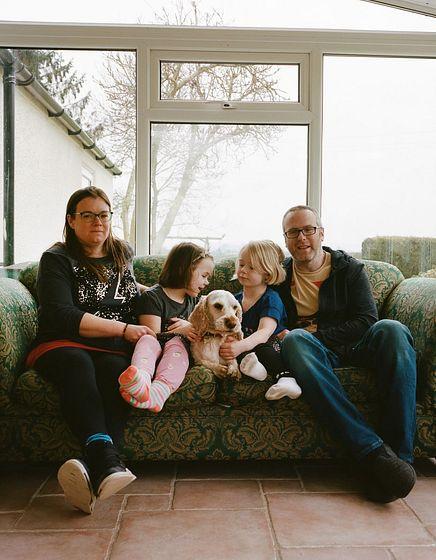
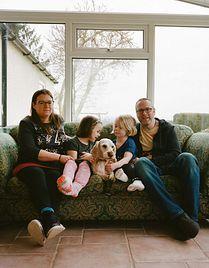
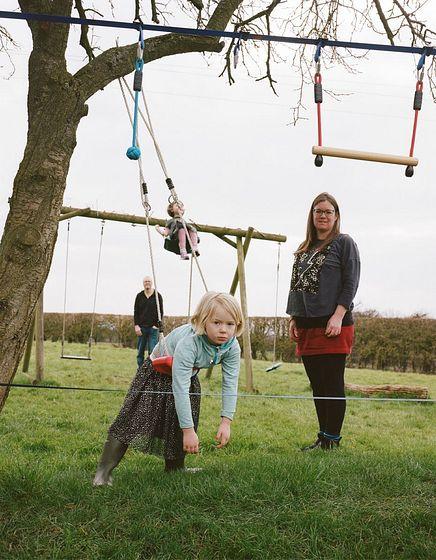
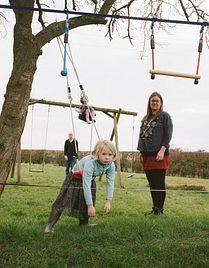
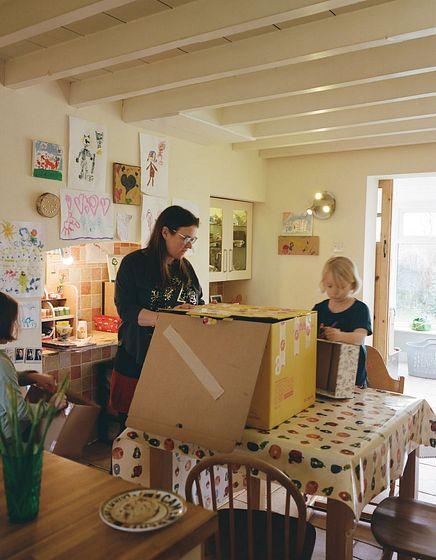
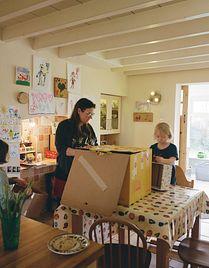
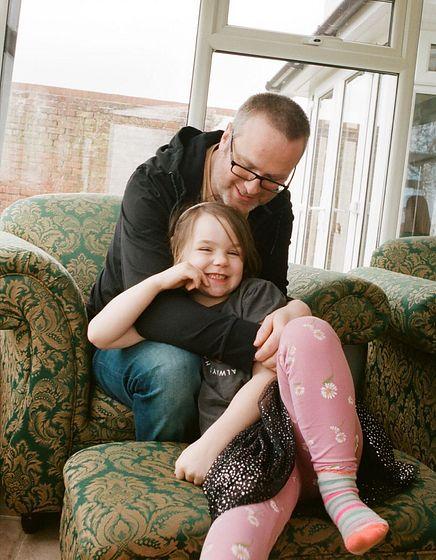
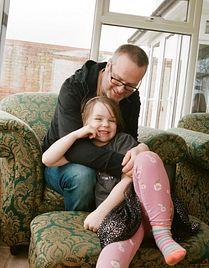
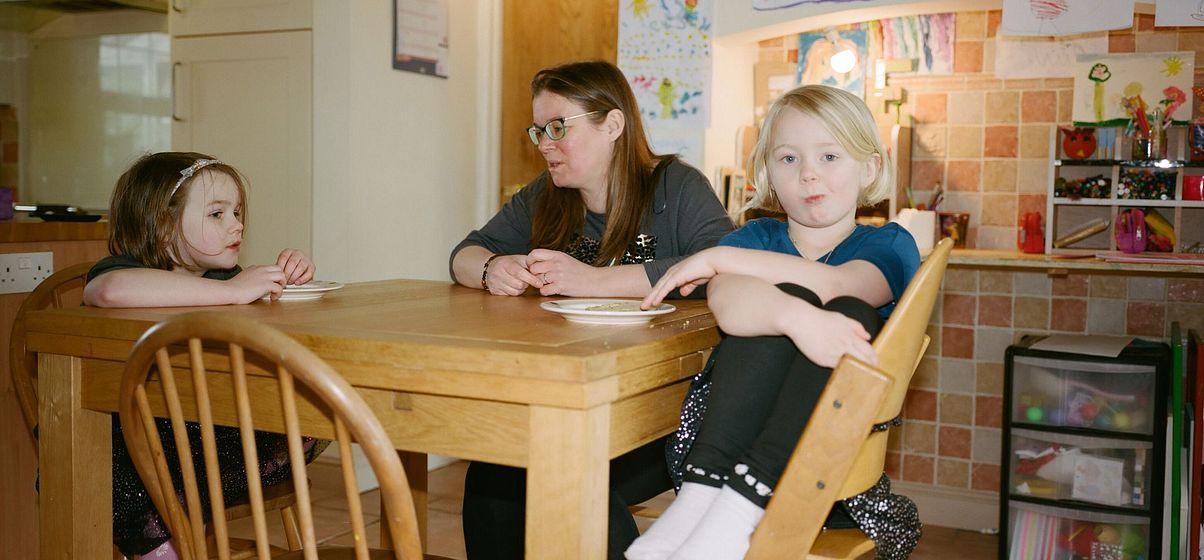
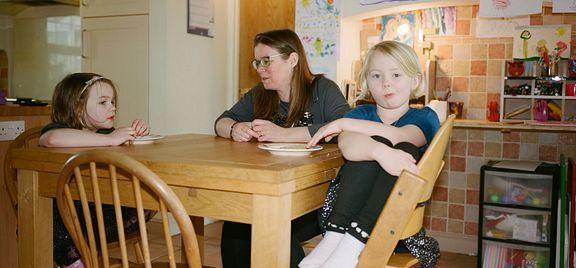
“It’s crazy when you think about our level of privilege; two full-time working people with good jobs couldn’t afford to stay in work and pay for childcare,” says Su. “Then we thought, since I’m out of work, if we wanted any more children we should have them now, so they’d get to school age at around the same time and I could get back to work.”
Su had loved the technical aspects of her job, wrangling with new systems and technologies, understanding how they might impact a wider project. “Suddenly, I went from that to sitting all day at my kitchen table with two babies,” she says quietly. “I thought I would go mad. I used to go on the internet and look for things that I could do, things I could read, interesting technical articles that kept me in the loop with my industry. But it didn't work.”
One day a new bread bin she’d ordered online arrived broken. “I just cried and cried,” says Su. “My husband said ‘you've gone from an IT guru, someone really technical, to someone who cries over a wooden bread bin. What can we do to fix this?’”
Like Regina, Su argues that the problem is the zero-sum choices that parents are often forced to make.
“You can’t really win, it becomes this balancing act of sacrifices. For some people, taking time off to care for children really works and makes them really happy. And I think that’s great. But being forced into that situation meant I completely lost myself, I lost my sense of identity, I started to wonder if I was a valuable person.”
Without an extra salary, they also couldn’t afford nursery care. “We realised that the only way I could get some support, just to have a few hours to myself in a week, would be if we moved from Hampshire to York to be nearer my parents. Luckily, Dave’s company allowed him to transfer, so that’s what we did.”
In their recent survey, Peanut found that 26% of respondents had moved to a new area to make childcare work. “It’s a total recalibration of your life,” says Su. “Maybe that’s how it should be when you have children, but if you’re giving up your passion and you feel unfulfilled and low all the time, that has an impact on an entire household, including your children.”
The move to York proved to be the starting point for a whole new kind of passion. With her parents on hand to take the children a few hours every week, Su started her own coffee subscription business, Dog And Hat Coffee, which she still runs from her kitchen.
“When it started to pick up, Dave and I would work through the night packing hundreds of orders, then I’d spend the day with the kids and he’d go to work.”
Despite the exhaustion, though, Su found herself energised by the new business. “I can’t stress enough how good it was for me to exist outside of motherhood,” she says. “It was just a long journey before I got to this point.”
She argues that offering parents even an hour or two a week of free childcare a week could make a huge difference in the first three years of their children’s lives. “Just an hour to tidy or an hour to read something could make so much difference to someone’s mental health.”
Just Make Childcare Free… Right?
It would be easy if all the problems in the system could be solved with more government-sponsored childcare from an earlier age. But most experts in the UK sector agree that this would not drive change where it matters most and it may even force some nurseries and childminders out of business.
“The way that our system is set up at the moment means that councils have a certain budget, allocated by the government (and estimated on how many young children there are in the borough) , which they distribute to their local early years childcare providers so that they can offer those 30 hours free to three- and four-year-olds,” says Van Dyke. “But the council will be giving their nurseries and childminders somewhere between £4 and £8 an hour, per child. For an awful lot of our childcare providers, that doesn't cover their operating costs.”
Factoring in the cost of renting a building, the cost of staff wages and myriad other business expenses, nurseries are often forced to charge higher premiums, or top-up fees just to break even.
“So more ‘free’ hours may well create more problems,” says Van Dyke. In fact, the most recent study by the Education Policy Institute (from 2019), found that there was a £662 million funding gap facing the sector. It highlighted that “38% of providers in deprived areas are making a loss, but settings in affluent neighbourhoods are feeling the effects too, where 23% are in the red”.
“When it started to pick up, Dave and I would work through the night packing hundreds of orders, then I’d spend the day with the kids and he’d go to work”
Some of the worst impacted by this shortfall in funding are the nursery staff themselves. Earlier this year, Cache, a charity that delivers training and qualifications for the early years sector, pointed out that ‘in-work poverty’ was a real problem facing nursery teachers and staff. It found that on average, early years practitioners are paid £8.74 an hour “compared with average rates of £8.91 for cleaning and bar work, £9.61 in sales roles and £11.86 in administration and secretarial jobs”.
In August 2020, the Social Mobility Commission found that one in eight childcare workers earns less than £5 an hour.
Dr Jo Blanden, an economist at the University of Surrey who has spent her career focusing on family economics and the impact of subsidised childcare on children and families, points out that the answer isn’t always more free childcare.
“There have been some social experiments – for instance, in Quebec –where the government heavily subsidised early years childcare so that it was accessible for everyone, and there was a huge take-up from parents. But there have been ongoing studies which show that, in the long term, it didn’t benefit the children. “There wasn’t enough investment in the quality of care and it led to all kinds of social problems.”
As well as investing more in the sector itself, to make sure that the quality of care is as good as it can be, she also points to findings published in IZA World of Labor, an online platform for evidence-based social policy. For countries like the UK, where women already have a strong presence in the workforce, to give parents more options and flexibility, policy-makers need to address “childcare regulations, welfare systems, and social norms”.
“Basically, this goes way beyond childcare in those early years,” says Blanden. “For me, a starting point would be how we can make it so that both mothers and fathers are equally involved in childcare. The fact is, take-up of paternity leave and shared parental leave in the UK has been incredibly low, this pushes the burden of care on to mothers from the start.”
She argues that it’s hard to compare the UK with Nordic countries because the problem isn’t just about policy, it’s ideological too.
“It’s a chicken and egg situation, really because you can put the policy in place but if you don’t change the culture, then no one will take up the provision. But to change the culture, there probably needs to be some policy in place first. I think we’re half-way there, with making parental leave more fair, but now private companies need to step in and encourage fathers to take the leave they’re entitled to."
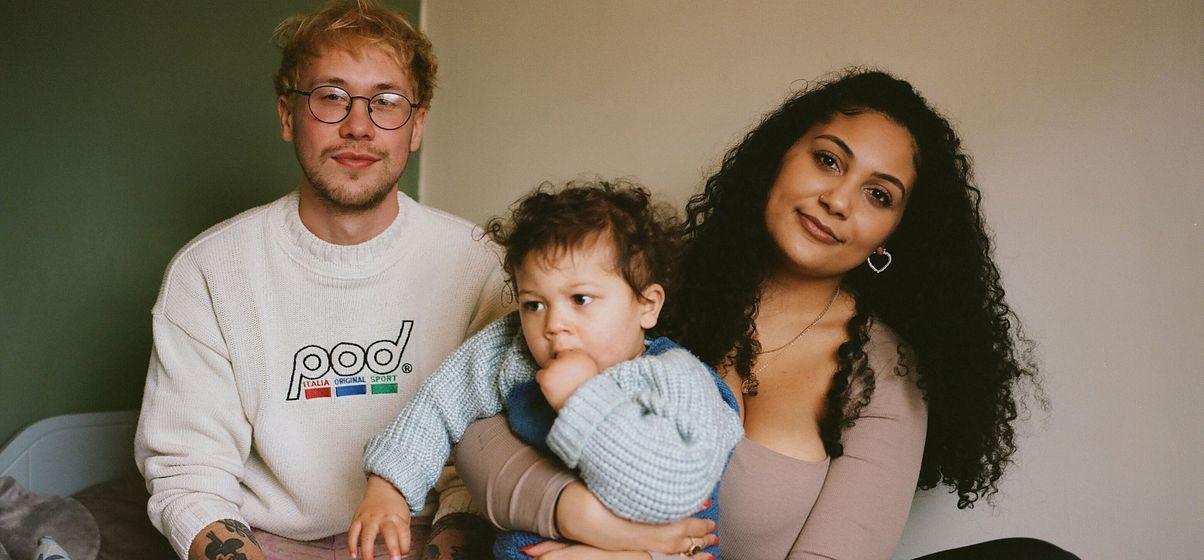


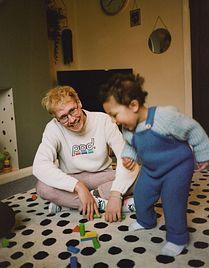
A Radical Re-Think
When 40-something Steven* (whose name has been changed at his request) found out his wife was pregnant, there was no question in his mind that they would share the parental leave. His wife had battled to get to the top of her field and he knew that a year away would put a strain on a career she loved. Beyond that, he was excited to spend time with his child. He was also in a fortunate position where he knew that this decision would be an easy one to carry out.
A few years before, he’d met two company founders in a co-working space and had given them advice on how to streamline their business. His advice proved sound, and within a few months, they’d offered him a partnership, an equal split of the business. He was thrilled – despite the fact that they were from very different backgrounds, the three of them worked well together.
Within a few short years, the company was valued for several millions of pounds, and Steven – whose father had been long term unemployed and whose mother never learned to read or write – suddenly found himself incredibly well off. “When it came to paternity leave, as a CEO I had a lot more say in how much time I could have off than the average worker and I chose to take three months with my child.” The problems only really began when he suggested rolling this out as a company-wide policy.
The company already had a generous maternity offering, but fathers only got the two-week statutory paid leave. “I pushed for our company to allow other fathers to take three months off,” he says. “To make it more equal for men and women.”
The other founders, though, were resistant. “Even my Head of People argued that it would be too risky for the business – what if too many men needed paternity leave at once? I came up with a business plan, which showed that if everyone sacrificed 5% of their salary, then we could mitigate that risk.” The business plan wasn’t even considered by the other founders. “It was at that point that I started looking for my successor, so I could step down from the company.”
Steven points out that it is important for co-founders of a business to be aligned on values and on how progressive they want their company to be.
“Take-up of paternity leave and shared parental leave in the UK has been incredibly low, this pushes the burden of care on to mothers from the start”
“For me, it didn’t even feel progressive – offering men paternity leave just seems fair. My child went to nursery from the age of nine months, at a cost of £2,000 a month. I have a good salary but it makes me ask, ‘how do people survive in London if it’s this difficult even with money?’”
Steven is now in the process of renouncing his CEO-ship; he is heavy-hearted about leaving a company that he has helped build from the ground up, but feels that steps like these are necessary to create lasting cultural change.
“This system keeps everyone down,” he says. “We shouldn’t outsource all of the responsibility for childcare to the government – companies have it in their power to make a fairer system, where parents can share the burden at home first.”
Armarni Lane, aged 25 from Sheffield, was desperate to get back to work after the birth of her son, Gabriel. Her pregnancy had been a shock for her and her partner, who were both 23 and in their final years at university at the time.
“I was worried about my career prospects,” she says. “I knew that it would be very difficult for both of us to continue our career trajectories because we couldn’t both work full time and look after the baby. We just didn’t have the funds to put him in full-time childcare.”
When Gabriel was born, Armani had graduated and her partner had a full-time job. For the first eight months, she stayed at home. “I was really surprised about the lack of help for working parents. I think with tax breaks it worked out at a few pounds off for every £100 spent, which doesn’t make much of a difference, really.” But taking that time away from her nascent career added other pressures.
“I had been so career-focused and seeing my partner working, going to conferences and doing all the things I wanted to do caused a lot of tension and frustration. And I think he felt the same, in a way. He was out, working hard, and I was just getting to spend time with the baby.”
As the months wore on, their relationship buckled under the pressure of new parenthood. “And just from all this resentment that was building up – even when I got a part-time job, I still felt like my career was on hold and that I had no choice about that.”
Looking back, Armarni is thoughtful, “at first neither of us questioned that I’d stay at home and he’d work. It’s what you see in the media. It’s what family expected, as well.” But during lockdown, they found that both of their sentiments shifted. “I realised I just really wanted to work full time, and I think he realised he’d prefer to be part time and take more of a caring role.” Since then, they’ve developed a routine that they’re both happy with.
“It sounds so simple, but people treat it as if it’s radical,” says Armarni. “Our son goes to nursery one day a week, and my partner is the only man doing the pick up and drop off. He often gets people making jokes about it. And I think my family still don’t really get why I’d choose to work. We’re young parents so maybe it’s easier for us to walk our own path, but the level of stigma around a mum deciding to be the main earner has surprised both of us.”
Baroness Blake points out that these kinds of attitudes are represented in policies throughout the parental provisions system. One way to start changing the expectations, she says, is to bring partners into conversations around child welfare from an early point.
“What we discovered in Leeds (where she was head of the city council) is that when their partners are pregnant, it provides a real opportunity to engage with young men. And it's so important to establish support frameworks for them and make them feel like they have a real part to play.
“Often there’s a fear of what's expected of them or a lack of awareness, they might not have been involved in any of those aspects of life when they were growing up.” This, she argues, is one of the simple ways that we can begin to dismantle the system now. “Those fathers will then feel more empowered to demand their time off,” she says.
“I pushed for our company to allow other fathers to take three months off...Even my Head of People argued that it would be too risky for the business...It was at that point that I started looking for my successor, so that I could step down”
Beyond that, she says that a wholesale overhaul of the way we pay for childcare in early years needs to happen from a governmental level.
Van Dyke agrees, pointing out that we need a holistic approach, from the moment a person gets pregnant, so that families are empowered to make the best choices for them. “And the level of bureaucracy needs to be addressed,” she says. “The hoops that people have to jump through just to access the childcare that they’re entitled to is huge. This is fine for better off parents who have the time, but carers of disabled children, for instance, often get penalised because they don’t have hours to spend on the phone, or filling in forms.”
Regina recently founded a charity, A Hand to Guide, that offers a buddy system to homeless individuals, and particularly women who’ve survived domestic abuse, helping them to access support from the government and charities, for this exact reason. “It’s daunting trying to figure out what your entitlements are,” she says.
In the meantime, parents continue to make the best choices they can for their children. But with mass closures of nurseries forecast in the post-COVID period, the time for reform may well be running short.
Some names have been changed
The Short Stack
Access to childcare is one of the core drivers of gender and class inequality in the UK today. It’s time for reform before it’s too late.
By Alexandra Jones
"Motherhood is a revelation in itself and there’s a bravery that comes with being a mum" - The New Working Mother Navigating Life With Another Baby To Juggle
The Stack speaks exclusively with Greek designer Mary Katrantzou on her new Lipsy London collection, welcoming indecision, and unlocking a new sense of bravery since becoming a mother.
